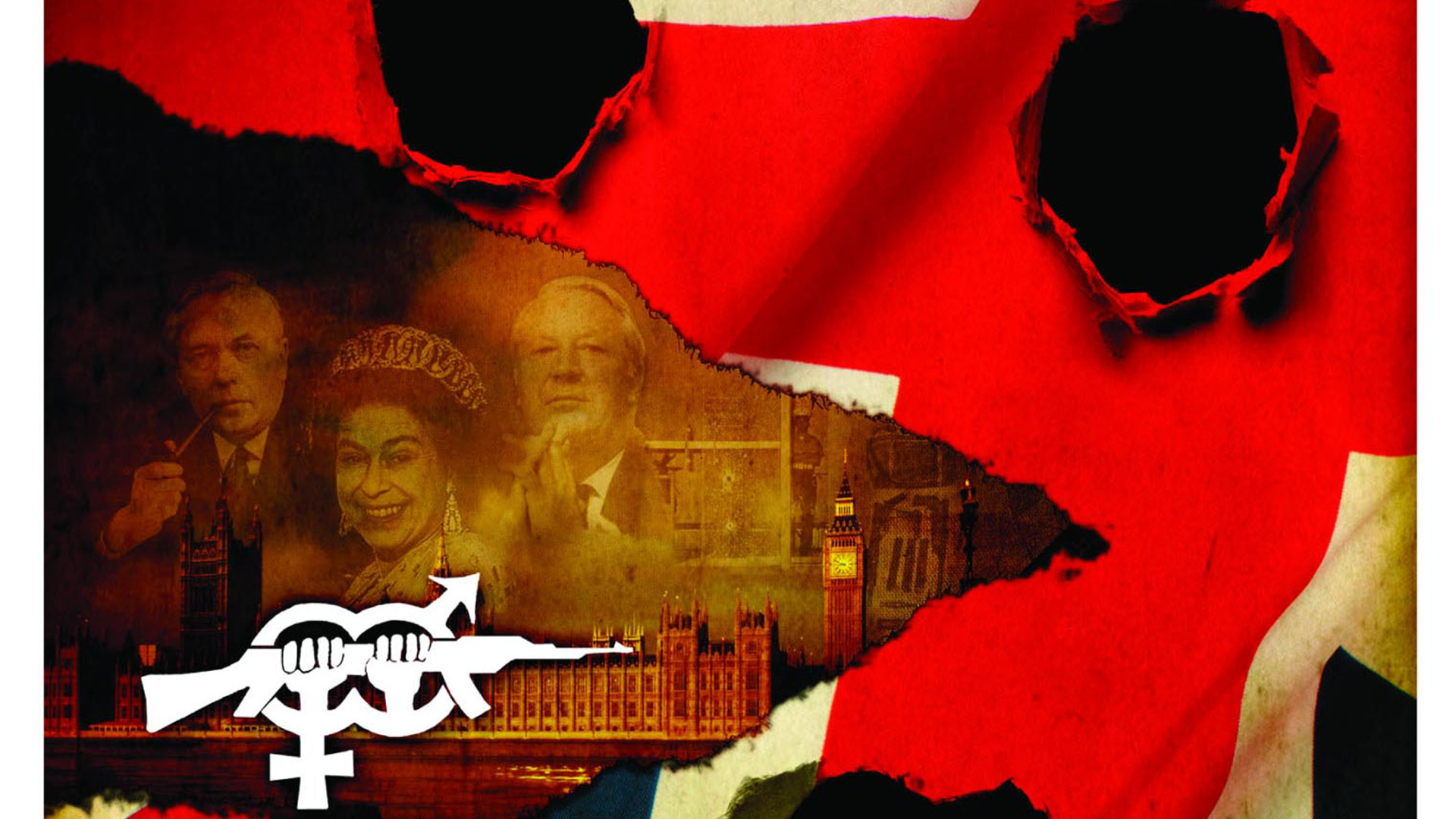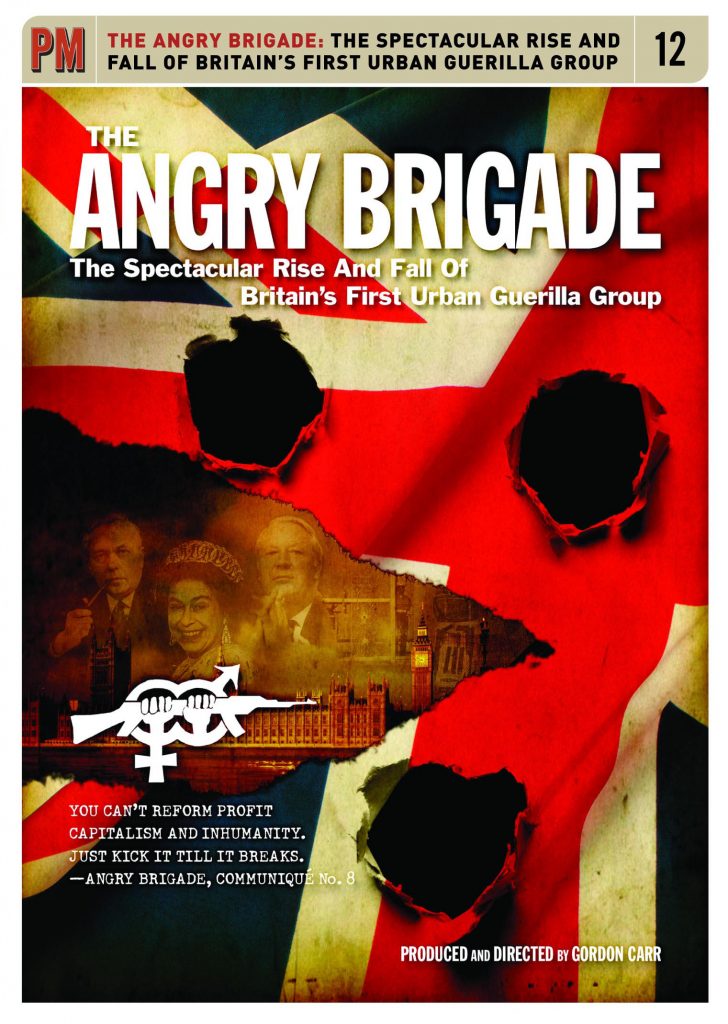The Spectacular Rise and Fall of Britain’s First Urban Guerilla Group
By Sarat Colling
Political Media Review
This BBC film by Gordon Carr, released in 1973 and republished in 2008, documents the events surrounding Britain’s longest ever conspiracy trial, in which eight young anarchists were charged with conspiring to commit 25 bomb attacks as members of the Angry Brigade.
The Angry Brigade was a militant British libertarian group active during the politically intense period of the late 60s and early 70s. Inspired by Spanish anarchism and the Situationists, they opposed repressive regimes and materialist society by taking symbolic militant actions against property. The group was in some respects a manifestation of the frustration many people were feeling at the time. In England, the conservative government was facing widespread opposition to a highly controversial platform, including their Industrial Relations Bill, and internment was introduced in Northern Ireland.
The Angry Brigade’s targets included police stations, banks, army bases, Cabinet minister’s homes, and embassies of repressive regimes. Their concerns were diverse. Once, coinciding with a women’s lib demonstration, they bombed a BBC van at a Miss World Contest.
It is nice to see such a balanced, even sympathetic, portrait from the BBC of such a radical group. Carr did extensive research amongst police and anarchists and the interviews are intriguing. Those interviewed include Octavio Alberola, a prominant Spanish militant who fought the Franco reqime and helped bring revolution to Europe, Stuart Christie, who spent years in jail for his attempt to assassinate Franco, John Barker who was indicted at the trial, as well as the head investigator on the case. Also fascinating is the film’s historical footage. It records inside communes, massive demonstrations and other revolutionary events of the time.
A bonus of the recently released version is the 20-minute documentary on the “Persons Unknown” trial which took place during a time of heightened security due to the IRA. In years following the trial of the Angry Brigade, members of the Anarchist Black Cross were charged for “conspiring with persons unknown, at places unknown” to overthrow society. In a successful outcome for the defendants, all were acquitted and one jury member even became an anarchist.
Although they were short lived, the Angry Brigade made an impact. Some of their communiqués were a thousand words long, and, as Carr says, “Well argued…closely reasoned, forcing others to redefine ideas of violence.” Not only did they make the mainstream consider their actions, the group impacted other activists. Notably, Ronnie Lee, an Animal Liberation Front (ALF) founder said he was influenced by their direct action. The ALF formed in London soon after the Angry Brigade trial, with similar guidelines of not harming any person, and twenty years later is still active around the world.
The emergence of the Angry Brigade marked an important turning point in the 20th century when the hippie era was transforming into a new urban guerilla movement. I highly recommend this film to anyone interested in social movement history, anarchism, European social change, political prisoners, and political trials. It is a great resource for college students, high school students, graduate students, activist organizations, and the general public wanting to know a part of history that goes untold in most history books.
For those seeking further insight about the Angry Brigade, the straightforward documentary approach of Carr’s film is well supplemented with publications such as Granny Made me an Anarchist: General Franco, The Angry Brigade and Me, a memoir by Stuart Christie, and Anarchy In The UK: The Angry Brigade by Tom Vague, an illustrated book which includes police and court documents and draws upon their communiqués.







